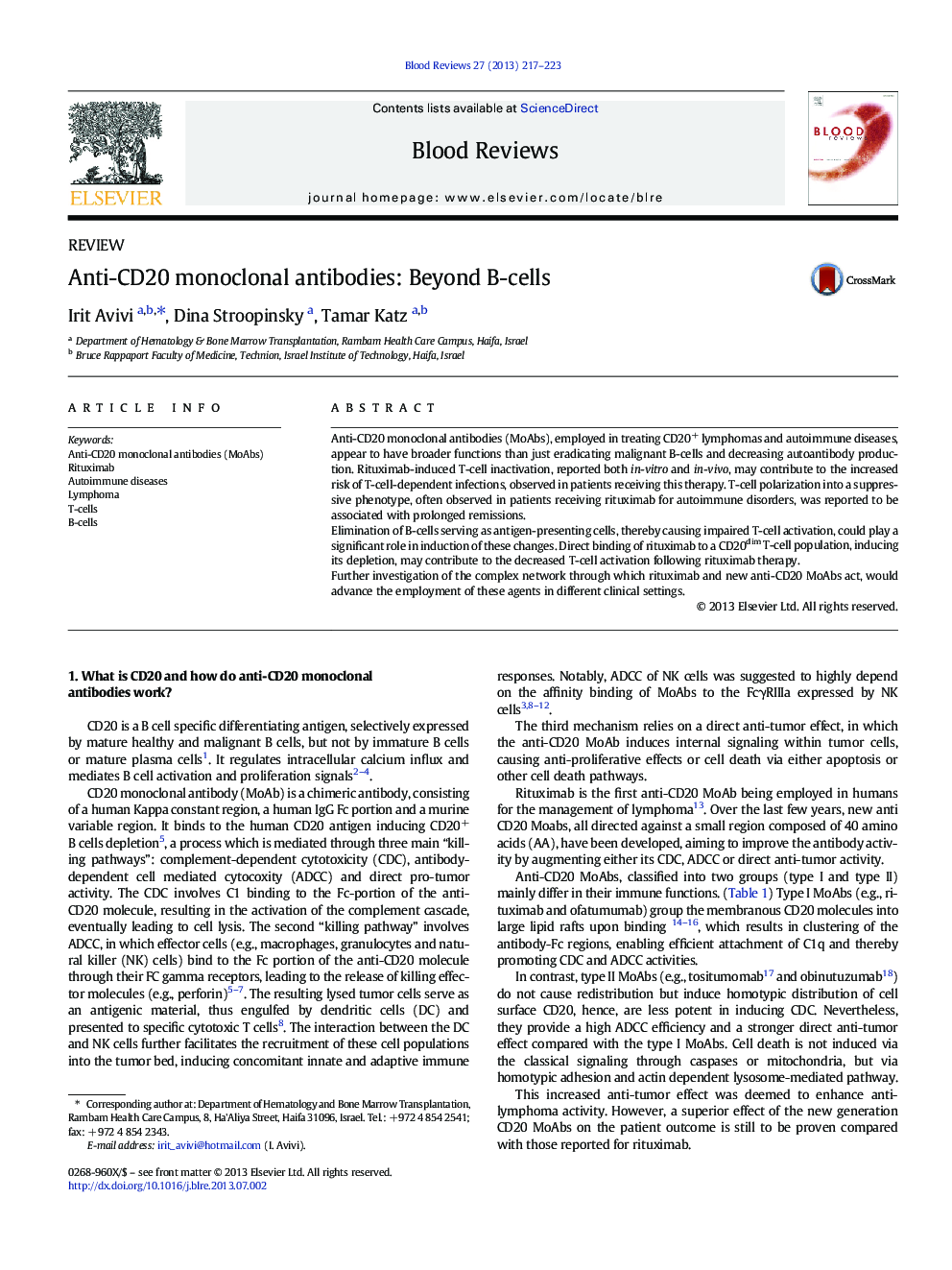| Article ID | Journal | Published Year | Pages | File Type |
|---|---|---|---|---|
| 2106184 | Blood Reviews | 2013 | 7 Pages |
Anti-CD20 monoclonal antibodies (MoAbs), employed in treating CD20+ lymphomas and autoimmune diseases, appear to have broader functions than just eradicating malignant B-cells and decreasing autoantibody production. Rituximab-induced T-cell inactivation, reported both in-vitro and in-vivo, may contribute to the increased risk of T-cell-dependent infections, observed in patients receiving this therapy. T-cell polarization into a suppressive phenotype, often observed in patients receiving rituximab for autoimmune disorders, was reported to be associated with prolonged remissions.Elimination of B-cells serving as antigen-presenting cells, thereby causing impaired T-cell activation, could play a significant role in induction of these changes. Direct binding of rituximab to a CD20dim T-cell population, inducing its depletion, may contribute to the decreased T-cell activation following rituximab therapy.Further investigation of the complex network through which rituximab and new anti-CD20 MoAbs act, would advance the employment of these agents in different clinical settings.
